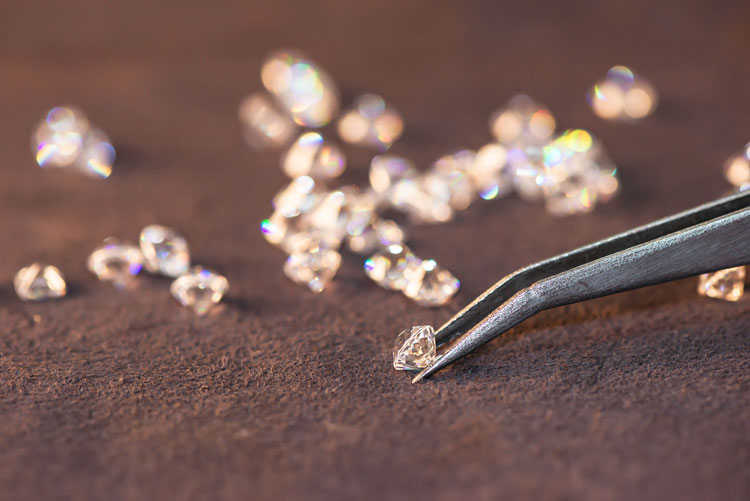Introduction
So, you’re thinking about getting a platinum ring, huh? That’s an exciting choice, and if you’re leaning towards it, you’re not alone. Platinum rings are often seen as the pinnacle of luxury and durability, but is it the right choice for you? Let’s dive into what makes platinum so special and whether it’s the perfect fit for your needs.
What is Platinum?
Platinum is a dense, malleable metal with a natural white sheen that doesn’t fade or tarnish. It’s a favorite among those who appreciate a sophisticated, timeless look. But before you rush to make a decision should I get platinum ring, let’s break down how platinum stacks up against other popular metals.
Platinum vs. White Gold
Platinum and white gold are often compared, but they have some key differences. White gold is an alloy that combines gold with other metals to achieve a white color. Platinum, however, is a pure metal (typically around 95% purity). This purity contributes to its durability and resistance to tarnishing, making it a bit more robust than white gold.
Durability and Longevity
When it comes to durability, platinum is tough to beat. It’s naturally denser and heavier than gold, which means it’s more resistant to wear and tear. Let’s delve deeper into its properties.
Scratch Resistance
Platinum’s resistance to scratches is one of its most appealing features. While no metal is entirely scratch-proof, platinum’s density means that scratches are less likely to damage it severely. Instead of losing material, platinum tends to develop a patina, which can actually enhance its appearance over time.
Color and Appearance
One of the most striking features of platinum is its color. It maintains a bright, white shine without needing rhodium plating, unlike white gold. This makes it a great choice if you’re looking for a ring that will retain its lustrous look for years to come.
Why Choose Platinum?
Platinum rings aren’t just about looks—they come with a host of benefits that can sway your decision.Lab grown diamonds are an innovative and sustainable alternative to mined diamonds, created in controlled environments that replicate the natural conditions under which diamonds form. Using advanced technologies such as High Pressure High Temperature (HPHT) or Chemical Vapor Deposition (CVD), these diamonds are chemically and physically identical to their natural counterparts. Lab-grown diamonds offer a more environmentally friendly option, reducing the ecological and ethical concerns associated with traditional diamond mining. They are also often more affordable, allowing consumers to enjoy high-quality, visually stunning gemstones at a lower cost. As technology continues to advance, lab-grown diamonds are becoming increasingly popular for their beauty, value, and minimal impact on the planet.
Purity and Quality
As mentioned, platinum is typically 95% pure, which is higher than white gold’s standard. This high purity level contributes to its hypoallergenic properties and overall quality, making it a great choice for those with sensitive skin.
Hypoallergenic Properties
If you’ve ever had issues with metal allergies, platinum might be your answer. Because it’s almost pure and contains fewer alloys than other metals, it’s less likely to cause skin reactions.
Resale Value
Platinum holds its value well compared to other metals. If you ever decide to sell your ring, platinum typically fetches a higher resale price. It’s a good investment if you’re thinking long-term.
Budget and Cost
Platinum is more expensive than gold, so it’s important to set a budget that accommodates this. The cost is a reflection of its purity and durability, but make sure it aligns with what you’re comfortable spending.
Ring Design and Style
Platinum’s strength and malleability allow for intricate designs and settings. Whether you want a classic solitaire or a more elaborate design, platinum can be crafted to meet your style preferences.
Personal Preference
Ultimately, your personal taste matters most. If you’re drawn to the elegant, understated beauty of platinum, it might be worth the investment. Consider how it feels to you and if it complements your style.
How to Care for Your Platinum Ring
Platinum is low maintenance, but it still requires some care to keep it looking its best.
Regular Cleaning
A simple cleaning routine can keep your platinum ring shining. Use a mild soap solution and a soft cloth to clean it. Avoid harsh chemicals and abrasive materials that could damage the finish.
Avoiding Damage
While platinum is durable, it’s wise to take care to avoid unnecessary damage. Remove your ring before engaging in activities that could cause scratches or impact, like heavy lifting or sports.
Conclusion
So, should you get a platinum ring? If you value durability, timeless elegance, and a hypoallergenic metal, platinum is a fantastic choice. It’s a significant investment but one that’s likely to pay off in terms of longevity and style. Ultimately, the best ring is one that reflects your personal style and fits your budget. If platinum ticks all your boxes, go ahead and enjoy the luxury and lasting beauty it offers.




